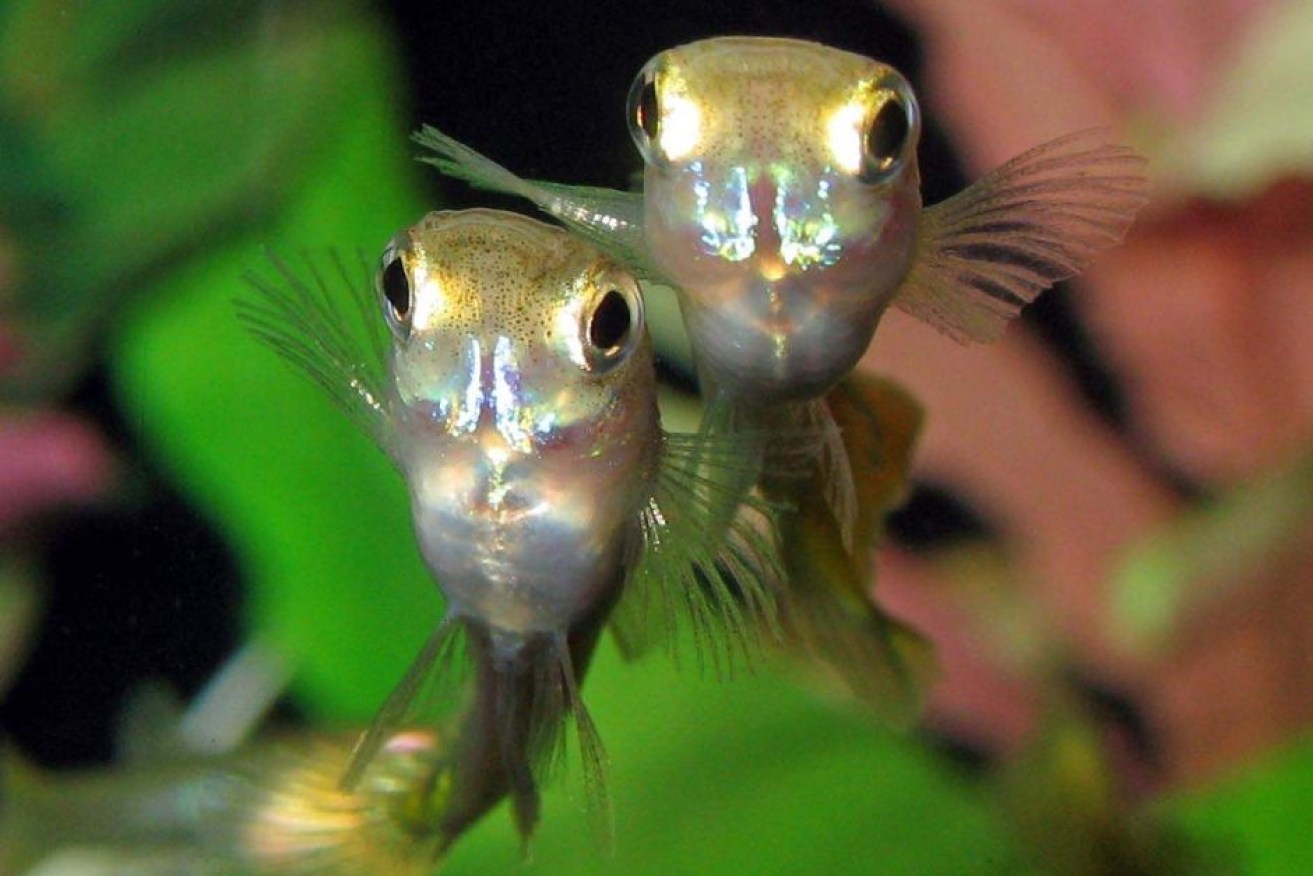Beef steroids turning guppies into sex monsters

New research has shown traces of a potent androgenic steroid used to beef up Australian cattle can cause male guppies to forcibly mate with unconsenting female guppies.
Trenbolone is an endocrine-disrupting chemical that has been banned in the European Union since 1988, but is widely used in beef production in Australia, the United States, South America, Japan and New Zealand.
• Turning the tables: killer seals feast on sharks
• Fisherman’s close encounter with great white shark
In the study, scientists from Monash University and Abo Akademi University in Finland exposed guppies to extremely low concentrations of the steroid to mimic the levels caused by agricultural run-off.
They then monitored the mating behaviour of the fish.
Monash PhD candidate Michael Bertram said male fish exposed to the steroid stopped exhibiting their usual elaborate mating behaviour.
“Usually they’ll either dance for the female, which involves the male sort of presenting himself in front of the female, hanging in the air in front of her,” Mr Bertram said.
“So he will kind of get in front of her and display his colours and then if she is receptive, he will move up behind her and fertilise the female.”
Instead, researchers found male guppies who had been exposed to Trenbolone at just 22 parts per trillion were using what scientists call a “sneaking behaviour” to mate with females from behind, without any courtship efforts.
“The male actually insert a modified anal fin which serves as a sperm transfer organ,” Mr Bertram said.
“This is how they circumvent female choice in the sense that she doesn’t get to see the males and decide who she wants to mate with.
“She’s just mated with by the male.”
Issue of animal consent ‘complicated’
The issue of sexual consent in animals is complicated, but Mr Bertram said usually female guppies make it clear when they want to be mated with, and by which potential partner.
“They’ll perform gliding behaviour if they are receptive,” he said.
“That involves the female sort of gliding towards the male and she swims only with her pectoral fins, which are the front fins.
“It’s quite nice to watch actually. She will glide through the water and he will come and fertilise her.”
Co-author and associate professor of behavioural and evolutionary biology, Bob Wong, said while the study is novel it has serious implications for guppies and other species as well.
“The amount of the sperm that the males can actually, I guess, give to the females in the cases of these sneak copulations are usually much less than in matings that have female consent,” Dr Wong said.
“Sexual selection is a really important process because it can affect the number and quality of offspring produced, and in turn influence population dynamics.
“That in turn can effect ecological and evolutionary processes.”
Mr Bertram said the research demonstrated Trenbolone could cause widespread disruption of mating systems in other species exposed to the steroid.
“We use [guppie populations] as a model which we then apply and say well, if it is having this effect in guppies, then it is having this effect in mosquito fish and zebra fish and other fish and beyond,” he said.
Steroid 50 times more potent than testosterone
Trenbolone has up to 50 times the anabolic potency of testosterone.
Last year it was linked to a beef import stoush when Russia said it had detected traces of the hormone in meat samples from Australia.
Australia produces 2.3 million tonnes of beef each year.
Trenbolone is the most heavily used androgen in the 40 per cent of adult cows receiving endocrine disrupting chemicals to promote growth.
The Australian Pesticides and Veterinary Medicines Authority (APVMA), which regulates the chemical, said 12 products containing Trenbolone were registered in Australia.
In 2003 APVMA reviewed the human safety of residues of hormone growth promotants like Trenbolone.
“There is unlikely to be any appreciable health risk to consumers from eating meat from cattle that have been treated with HGPs according to good veterinary practice,” it concluded.
In a statement, APVMA said it regularly monitors for potential adverse impacts of Trenbolone and other chemicals.
Meat and Livestock Australia and the Cattle Industry Association were also contacted for comment.
The study was published in the international Journal Hormones and Behaviour.








